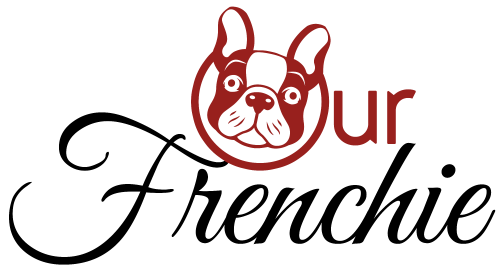About
How to Help a Rescued French Bulldog Adjust to a New Home
Page Contents
Bringing a rescued French bulldog into your home is a rewarding experience, but it also comes with its unique set of challenges. These charming dogs, known for their affectionate nature and distinctive bat-like ears, may need extra care and patience to adjust to their new surroundings. Whether your furry friend has faced neglect, abandonment, or simply a change in circumstances, understanding their needs is crucial for a smooth transition. This guide will provide you with practical tips and insights to help your French Bulldog feel safe,loved,and cozy in their new home,fostering a strong bond that will last a lifetime.
Creating a Safe Space for Your Frenchie
Bringing a rescued French Bulldog into your home requires thoughtful preparation to ensure their comfort and safety. Start by designating a specific area in your home as their personal sanctuary. This space should be quiet, away from heavy foot traffic and loud noises, allowing your Frenchie to relax and decompress. Consider using a cozy dog bed or a crate with soft bedding to provide a sense of security and warmth. Make sure this area is easily accessible and free from potential hazards like electrical cords or small objects that could be swallowed.
- **Comfortable Bedding:** Invest in a plush dog bed or crate pad that supports their joints and keeps them warm.
- **Temperature Control:** French Bulldogs are sensitive to temperature extremes. Ensure the space is neither to hot nor too cold.
- **Calm Environment:** Use calming diffusers or soothing music to create a tranquil atmosphere.
Encourage your Frenchie to explore their new safe haven at their own pace. Scatter a few toys and treats to make the area inviting and engaging. Remember, patience is key; give them time to adjust to their surroundings. by establishing a safe and comforting environment, you’ll help your rescued French Bulldog feel secure and loved as they settle into their new home.
Establishing a Consistent Routine
Creating a predictable environment is key to helping your rescued French Bulldog feel secure and comfortable. Dogs thrive on routine, and by establishing a consistent schedule for feeding, walks, playtime, and rest, you can significantly reduce their anxiety. Start by feeding your Frenchie at the same times each day. This not only helps with digestion but also provides a sense of stability.Similarly, schedule regular potty breaks and stick to them, which will assist with house training and prevent accidents.
incorporate structured play sessions and daily walks into your routine. French Bulldogs are known for their playful nature, and engaging them in interactive games or a leisurely stroll can help burn off energy and strengthen your bond. **Consistency in these activities** not only improves their physical health but also enhances their mental well-being. Remember to keep the duration and intensity of physical activities appropriate for their breed, as French Bulldogs can be prone to overheating and respiratory issues.
- feed at the same times daily
- Schedule regular potty breaks
- Incorporate structured play sessions
- Maintain a consistent walking schedule
Creating a bedtime routine is equally important. Ensure your Frenchie has a comfortable sleeping area where they can retreat to when they need rest. A consistent bedtime helps regulate their internal clock and ensures they get adequate sleep. Over time, these routines will help your rescued French Bulldog feel more at home and confident in their new environment.
Understanding French Bulldog Behavior
French Bulldogs are known for their affectionate and playful nature, but understanding their unique behavioral traits is crucial for a smooth transition into a new home. Typically, these dogs are characterized by their sociable demeanor, making them excellent companions. Though, rescued French Bulldogs may exhibit certain behaviors stemming from their past experiences. Being patient and observant can help you identify these traits and address them effectively.
One common behavior you might notice is their tendency to seek constant companionship. french Bulldogs thrive on human interaction and may become anxious if left alone for extended periods. to mitigate separation anxiety, consider creating a safe space for them with comforting items like a blanket or a toy. Additionally, gradually increasing the time they spend alone can definitely help them adjust to your routine.
Another aspect to consider is their **stubborn streak**. While French Bulldogs are intelligent, they can be a bit headstrong.Positive reinforcement techniques, such as treats and praise, are especially effective in encouraging desired behaviors. Consistency is key, so ensure that all family members are on the same page regarding rules and training methods.By understanding and respecting their behavioral nuances, you can foster a loving and harmonious environment for your rescued French Bulldog.
socializing with People and Pets
Helping your rescued French Bulldog acclimate to a new environment involves patient socialization with both humans and other animals. This process is crucial for building their confidence and ensuring a harmonious household. Begin by introducing them to family members and frequent visitors in a calm,controlled setting. Encourage positive interactions by offering treats and praise when your dog remains calm and friendly. It’s important to avoid overwhelming your dog with too many new faces at once,as this might lead to anxiety or fear.
When it comes to other pets, gradual introductions are key. Start with brief, supervised meetings in a neutral space. **Monitor body language** closely; look for signs of stress or aggression, such as growling or stiff posture, and separate them if necessary.Over time, increase the duration of these interactions, always rewarding positive behavior with treats or affection. This approach helps foster a peaceful coexistence and may even lead to lasting friendships.
- Introduce new people slowly and in a calm environment.
- Use treats and praise to reinforce positive interactions.
- Conduct pet introductions in neutral spaces and under supervision.
- Watch for body language cues to prevent conflict.
- Gradually increase interaction time to build comfort and trust.
Training Tips for a Smooth Transition
When welcoming a rescued French Bulldog into your home,establishing a training routine is essential for a smooth transition.Begin with **basic commands** such as “sit,” “stay,” and “come.” Consistency is key, so ensure all family members use the same commands and reward systems. French Bulldogs are known for their intelligence and eagerness to please, so positive reinforcement techniques, like treats and praise, can be particularly effective.
Creating a **structured environment** is crucial for your new furry friend. Establish designated areas for eating, sleeping, and playing to help them feel secure. Use a consistent schedule for feeding and walks to build a sense of routine. This predictability will help reduce anxiety and make them feel more at home.
- Patience is paramount: Remember that adjustment takes time, and every dog is different.
- Socialization: Gradually introduce them to new people and environments to build confidence.
- Gentle guidance: Avoid harsh corrections; instead, redirect unwanted behaviors with positive alternatives.
Lastly, consider enrolling in a **basic obedience class**. Not only will this provide essential training, but it will also offer socialization opportunities with other dogs. This can be a fun way for both of you to bond and learn together, setting the stage for a happy and harmonious life in your new home.
Feeding and Nutrition Guidelines
- **Choose High-Quality Food**: Opt for a premium dog food that is specifically formulated for small breeds. french Bulldogs have unique dietary needs, so it’s essential to select a product rich in protein and healthy fats, with limited fillers and artificial additives.
- **Establish a Feeding Schedule**: Consistency is key. Feed your French Bulldog at the same times each day to help establish a routine. Typically, two meals a day—morning and evening—are sufficient for adult dogs, while puppies may require more frequent feedings.
- **Monitor Portion Sizes**: Overfeeding can lead to obesity, a common issue in French Bulldogs. Follow the portion guidelines on the food package, adjusting based on your dog’s age, weight, and activity level. Regularly consult with your veterinarian to ensure your dog is at a healthy weight.
- **Introduce New Foods Gradually**: If you need to switch your dog’s food, do so gradually to prevent digestive upset.Mix a small amount of the new food with the old, gradually increasing the new food while decreasing the old over a week.
- **Provide Fresh Water**: Always ensure your French Bulldog has access to clean, fresh water. Hydration is crucial, especially since these dogs can be prone to overheating.
By following these guidelines,you can help your rescued French bulldog thrive in their new home,ensuring they receive the nutrition they need to stay healthy and happy.
Monitoring Health and Vet Visits
Ensuring the well-being of your newly rescued French Bulldog is crucial,and vigilant health monitoring is a key part of this process. Begin by scheduling an initial thorough veterinary examination to establish a baseline for your pet’s health. This visit will help identify any underlying health issues and ensure vaccinations are up-to-date. Regular vet visits should be planned, at least annually, to keep track of your dog’s health status and to receive professional advice on nutrition, exercise, and preventive care.
Be observant of your French Bulldog’s behavior and physical condition. Look out for signs of discomfort or illness, such as changes in appetite, unusual lethargy, coughing, or difficulty breathing. French Bulldogs are prone to certain health issues like brachycephalic syndrome, hip dysplasia, and skin allergies. **Immediate attention from a vet** is necessary if any concerning symptoms arise. Additionally, maintaining a record of your dog’s health history and any medications will be beneficial for ongoing and future veterinary consultations.
- **Regular check-ups:** Ensure routine vet visits to monitor your dog’s overall health.
- **Observation:** Watch for any signs of illness or discomfort, and be proactive in seeking veterinary care.
- **Health records:** Keep detailed records of vet visits,vaccinations,and any health issues.
By being proactive and attentive, you can help your rescued French bulldog transition smoothly into their new home while maintaining optimal health and happiness.
Building a Strong Bond with Your Pet
Developing a close relationship with your newly rescued French Bulldog requires patience, consistency, and understanding. Begin by creating a safe and comfortable environment where your pet can feel secure. allow your Frenchie to explore their new surroundings at their own pace, offering gentle encouragement and positive reinforcement. Establish a routine that includes feeding, walking, and playtime, as consistency will help build trust and make your dog feel more at ease.
Engage in interactive activities that cater to their playful nature and intelligence. **Puzzle toys**, **tug-of-war games**, and **short training sessions** can be excellent ways to stimulate their minds while strengthening your connection. Remember, French Bulldogs thrive on companionship, so spend quality time with them daily, whether it’s through play, gentle grooming, or simply relaxing together.
- Use positive reinforcement techniques such as treats and praise to reward good behavior.
- Be patient and understanding, as adjusting to a new home can be overwhelming for a rescue dog.
- Communicate clearly with consistent cues and commands to avoid confusion.
- Respect their space and allow them to approach you when they feel comfortable.
Building a strong bond takes time, but with love and dedication, your French Bulldog will soon feel like a cherished member of the family.
To Wrap It Up
Welcoming a rescued French Bulldog into your home is a rewarding journey that requires patience, love, and understanding. By creating a safe environment, establishing routines, and offering plenty of affection, you can help your new furry friend adjust smoothly. Remember, each dog is unique and may take time to fully acclimate. Celebrate small victories and be patient with setbacks. With your support, your French Bulldog will soon feel secure and cherished in their new home. Embrace this opportunity to build a lifelong bond and enjoy the unconditional love and joy they bring into your life.

